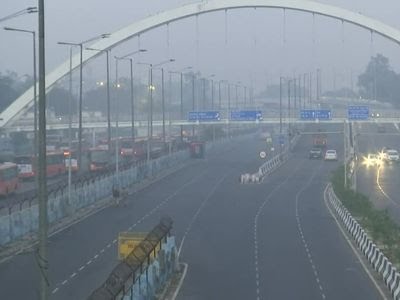Delhi Pollution: A thick layer of smog has settled over the Akshardham Temple and surrounding areas as the Air Quality Index (AQI) in the region rose to 334, according to the Central Pollution Control Board. This level of AQI falls under the ‘Very Poor’ category, indicating a significant risk to the health of residents, especially those with respiratory issues. Authorities have urged people to limit outdoor activities and take necessary precautions to reduce exposure to the hazardous air.
Rising Concerns Over Health Hazards
With the AQI at such alarming levels, experts have raised concerns about the adverse health effects on the general population, especially children, the elderly, and those suffering from asthma or other respiratory conditions. Prolonged exposure to such poor air quality can lead to breathing difficulties, eye irritation, and even long-term health issues like cardiovascular diseases.
Government Action and Public Advisory
Authorities have been monitoring the situation closely and are expected to introduce measures such as restricting vehicular movement and curbing industrial emissions in the coming days. Meanwhile, the public has been advised to use masks, limit outdoor activities, and use air purifiers indoors where possible.
The situation is a stark reminder of the annual rise in pollution levels in the Delhi NCR region during winter months. The combination of vehicular emissions, industrial pollutants, and seasonal stubble burning in neighboring states significantly contributes to the smog, reducing visibility and air quality.
Impact on the Yamuna and Surrounding Ecosystems
The rising pollution levels not only affect the air quality but also have a direct impact on the Yamuna River, which flows near Akshardham. The toxic smog settles over the water, exacerbating the already critical pollution levels in the river. This further harms aquatic life and disrupts the natural ecosystem.
Keep watching our YouTube Channel ‘DNP INDIA’. Also, please subscribe and follow us on FACEBOOK, INSTAGRAM, and TWITTER
